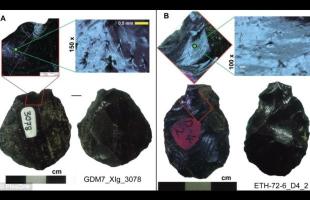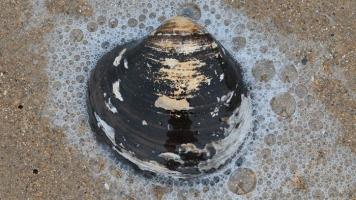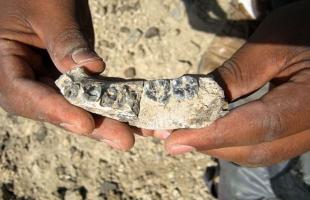Copy Link
Add to Bookmark
Report
Mead Lovers Digest #0258

Subject: Mead Lover's Digest #258, 22 January 1994
From: mead-lovers-request@eklektix.com
Mead Lover's Digest #258 22 January 1994
Forum for Discussion of Mead Making and Consuming
Dick Dunn, Digest Coordinator
Contents:
Lambic Request (Philip Cutone)
definitions? (Jim Sims)
Re: new book (Joyce Miller)
Dry AND Liquid yeast ??? / Commercial Meaderies List (COYOTE)
Sweet, High Alcohol Mead ("Robert H. Reed")
US definitions of beer, wine, mead, etc. (Dick Dunn)
Re: Bee List (Joyce Miller)
Send ONLY articles for the digest to mead-lovers@eklektix.com.
Use mead-lovers-request@eklektix.com for subscribe, unsubscribe, and admin
requests. When subscribing, please include your name and a good address
in the message body unless you're sure your mailer generates them.
There is an FTP archive of the digest on sierra.stanford.edu in pub/mead.
If you have email access but not ftp, it will accept "listserv" requests.
Send email with message "help" to listserv@sierra.stanford.edu.
------------------------------
Subject: Lambic Request
From: pec@tmc.astm.cmri.cmu.edu (Philip Cutone)
Date: Tue, 18 Jan 1994 07:51:24 -0500
I have been asked by several people about the lambic digest i
mentioned in one of my earlier posts... rather than respond to all, i
drop a note here....
>Send all other administrative requests (subscribe/unsubscribe/change) to:
> lambic-request@longs.lance.colostate.edu
sorry to all those not interested for the noise.
p.
------------------------------
Subject: definitions?
From: sims@pdesds1.scra.org (Jim Sims)
Date: Tue, 18 Jan 94 08:49:23 EST
Noting the rather odd definitions that appear to exist for alcoholic
beverages (esp in southern states), prompts me to ask for what the
_REAL_ definition is for:
BEER
WINE
MEAD
LIQUOR (sp?) - (you know - Bailey's, Grand Marnier, etc)
HARD LIQUOR (e.g. scotch, vodka, etc)
It seems to my uninformed self that:
BEER - made from malted grain
WINE - made from fermented fruit
MEAD - made from fermented honey
LIQUORS - distilled wines?
HARD LIQUOR - distilled anything, alcohol above X percent
I'm not interested in splitting hairs, but would like some reasonable
;-) working definitions of the above beverages.
I am NOT interested, for example, in the fact that Texas thinks that
any beer above 5% is an ale, South Carolina (my state) doesnt know
what a beer above 5% might be, etc.
tia,
jim
------------------------------
Subject: Re: new book
From: jmiller@genome.wi.mit.edu (Joyce Miller)
Date: Tue, 18 Jan 94 10:01:33 -0500
>Subject: new book/Yeast nutrient ("Dave Polaschek")
>From: pec@tmc.astm.cmri.cmu.edu (Philip Cutone)
>Date: Mon, 17 Jan 1994 08:12:48 -0500
>
>The new recipe book was mentioned earlier, when/where is it available?
>
>philip
The mead recipe book is currently under construction. There will be an
announcement on this list when it is available.
-- Joyce
========================================================================
Joyce Miller jmiller@genome.wi.mit.edu
Whitehead Institute / M.I.T. Center for Genome Research
1 Kendall Square, Bldg. 300 617-252-1914 (phone)
Cambridge, MA 02142 617-252-1902 (FAX)
========================================================================
------------------------------
Subject: Dry AND Liquid yeast ??? / Commercial Meaderies List
From: COYOTE <SLK6P@cc.usu.edu>
Date: Tue, 18 Jan 1994 14:26:19 -0600 (MDT)
Dave Polaschek the software guy...said
>Wait for it to cool to 70F and pitch 2 packs yeast. I recommend either
a) Red Star Champagne or
b) Wyeast liquid champage yeast
about equally. The Red Star is cheaper and provides me with good
results. I double up on the yeast because when I only pitch one
pack, I've had some slow starts, but never with two packs.
* Um...err...is that one of each, or two liquid at one time, and two
dry at another.
My point you ask? If using liquid yeast AND dry- you are wasting the
liquid. It will be overpopulated and dominated by the dry.
Also the big advantage of liquid- is in the purity. You undo that
if you also add dry- and all it's potential impurities.
(don't get me wrong. I usually use dry wine yeasts, of the red star
variety for meads/wines)
I would definitely recommend use of a starter in either case, but
especially with liquid yeasts- into musts. Aerate well and add some
nutrients, depending on the "quality" of your musts (beyond honey).
...
> The idea of freezing the fruit first to
make it easier to mush up sounds good. I sterilize fruit by steeping
it in hot (170-180F) wort, just like I do hops in beer. ...)
^^^^
"MUST" we mix our ferment-terminology? (say THAT fast!) ("that...fast")
I just got on people for calling hop-Petals "leaves". Guess I'm in
a nitty mood! :) Nit-Wit that I am!
But really- freezing is good. Bursting cells walls/membranes.
Pectic enzyme added to a ferment will help to break down cell walls
releasing even more yummy fermentables. Also helps clarify fruit musts.
***
Commercial meaderies:
An ongoing discussion of the where's and what's seems to be going on.
I had compiled a brief list of meaderies that I was aware of.
Several kind folks send me a couple more since then.
I'm not sure where I've put my original list (lost on the hd?)
so if anyone has it, or knows which digest issue it was in-
lemme know.
I'd be willing to re-compile/update the list if folks would
be willing to send me any info they have. I will tabulate/compile
and post the list. Perhaps I can send it over to the sierra archives.
Helpful info:
1. Product Name
2. Winery/Meadery Name, and Location
3. Phone Number, and/or Address
4. Approximate Cost. Would they ship?
5. Evaluation. Comments on style, quality, color. Sweet/dry...good/bad...
Some wineries will have a broad variety. Others..maybe one style.
But any info- for the list above, or additional (comments on the winery...
visitation experiences/information...etc) information would be welcome.
I know the evaluation part will be hard (yeah- ya gotta drink the schtuff!)
due to varied taste-buds, non judge certified opinions..et al.
AND I intend to do NO library searches, or expensive research for this.
I don't really have the time to do the list even, but I'd like to have it,
and would like to share it (I think I gather that there is a demand for
such a list!!!!!) If anyone would be willing to assist, proof-read,
what have you...drop me a line.
I'll be waiting. If you could list in the format above that would help.
additional comments can be added at the end. If you have previously
sent me info, lets hope I haven't lost it :) You COULD resubmit it. :\'
Thanks for any input. Keep making MUST.
***
BTW: Just got a notice from Joyce (thanks maam) for editing of the
recipes. Glad to know it's underway. Does this beast have a name
yet? I'll get on it write away.
/*To err is human, to ferment is divine. Random thoughts of the universe.*\
/------_______ John (The Coyote) Wyllie SLK6P@cc.usu.edu _______--------\
\ * Tomorrow I turn "almost thirty". 'Scuse to Celebrate?...Me?! * /
------------------------------
Subject: Sweet, High Alcohol Mead
From: "Robert H. Reed" <rhreed@icdc.delcoelect.com>
Date: Thu, 20 Jan 1994 15:00:40 -0500 (EST)
Steve Smith writes:
> One thing that always bothered me were the wonderful spicy smells that
> emanated from the boiling must for the first 3 minutes of the boil then
> disappeared. It seems like some great flavor and aroma componants of the hone
y
> are lost by boiling (maybe that's why the spices are needed?).
> I've heard that by not boiling the must I'd risk having problems with the
> mead being "cloudy" - that thought doesn't particularly bother me compared to
> the potential flavor gains.
I have made several meads by raising the temperature of the must above 175F
and holding for 15 minutes. I got a much nicer, more aromatic honey
character than I'd obtained in the meads in which the must was boiled. You
are correct in your supposition that unboiled meads are harder to clear;
however, there is an alternative to cloudy meads. I took Byron Burch's lead
and used sparkalloid powder to clear my mead, and it cleared to absolute
brilliance in three days. While I'm not clear on the make-up of this
product, it resembled pulverized bentonite clay.
My recipe for a sweet strong mead is:
16# clover honey
3 tsp. mead nutrient
2 pkgs Lalvin Champagne yeast
O.G. 1.115
F.G. 1.020
Rob Reed
------------------------------
Subject: US definitions of beer, wine, mead, etc.
From: rcd@raven.eklektix.com (Dick Dunn)
Date: 21 Jan 94 02:34:57 MST (Fri)
Jim Sims asks about classifications of beer, wine, etc. Since I had to dig
this out recently, I'll give a modest summary. All of what follows is legal
classification for the US, federal regulations which are administered by
the BATF (Bureau of Alcohol, Tobacco, and Firearms, which is a part of the
Department of the Treasury...I invite our readers outside the USA to "go
figure!") The relevant info is collected in 27 CFR parts 24 and 25; that
is enough info to find it in a public library or buy the ($37!) book from
your nearest US Government Bookstore. Obviously I'm not a lawyer and this
is not legal advice.
[Terminological diversion: CFR = Code of Federal Regulations--this is the
codified form of the law, i.e., collected by topic rather than by the
actual legislation. 27 is a "title" (major grouping) and covers only what
is administered by BATF. The subdivisions within a title are called
"parts". Within 27 CFR, part 24 is about wine; part 25 is about beer. The
next level of subdivision, which is about the useful amount of text to
examine or quote, is called a "section"--thus for example, 27 CFR Sec
24.75 covers "Wine for Personal or Family Use". Wasn't that fun?!?]
Simplifying greatly: If it's made from "grapes or other fruits", or "other
suitable agricultural products" [honey being the one that interests us],
it's classified as wine. If it's made from malt, it's beer. The beer
classification takes precedence in the sense that if it's made partly from
malt, it's in the beer category. This explains what you may have seen
called "malto-mead" produced by breweries--they can combine honey and malt,
and produce something within the scope of a brewery (not winery) license.
Note that beer is an encyclopedic term (covering ale, porter, stout, etc.).
The bizarre regulations which require labeling beer above some alcohol con-
tent as "ale", "malt liquor", or worse, are state regulations. The federal
regulations do not subdivide either beer or wine terminology based on alco-
holic content. They *do* provide that neither beer nor wine may be concen-
trated after fermentation (by *any* process) and still be regarded as such.
What this means is that you can make beer or wine at home, tax-free up to
the limits, but you may not distill, freeze, or otherwise concentrate them.
(There is a 24% vol/vol concentration limit on wine...but I think the law
has put a safely theoretical upper bound there! I certainly don't know of
any yeast that can do more than about 17%, and even that with difficulty...
nor do I have any inclination to find one.)
There is no separate legal classification for mead. Unless it contains
malt, it is wine (and, for empirical substantiation, there are wineries
that make mead under their licenses).
Cider is in a funny category, and I won't venture to interpret it. See
27 CFR 24.76, and proceed cautiously.
A household with one adult is allowed to produce 100 gallons per year each
of wine and beer, with no taxes or registration requirements. A household
of two or more adults is allowed 200 gallons per year of each.
"Liquor" in the sense that Jim asked about it is really called "distilled
spirits" in the laws; there's no separate "hard liquor". If it has been
concentrated, in effect it is "distilled" and subject to a nearly separate
set of regulations that I won't get into. (There's no point in doing so
here, since it's illegal to make them without a set of licenses of a sort
you cannot get at home.) If it contains distilled spirits, it's in the
same category.
[Yes, I'm responding to Jim's questions in the same digest issue as they
appear. Coordinator's prerogative; I promise not to abuse it. I had to
filter out an exceptional amount of aberrant-mailer garbage this evening,
so I felt I could slip something in place of all I had to edit out.]
---
Dick Dunn rcd@eklektix.com -or- raven!rcd Boulder, Colorado USA
...Mr Natural says, "Get the right tool for the job!"
------------------------------
Subject: Re: Bee List
From: jmiller@genome.wi.mit.edu (Joyce Miller)
Date: Mon, 17 Jan 94 10:01:00 -0500
>I'm trying to find this email list - anyone nkow if it still exists?
>
>
> - Honey Bee Growers Digest: hbg-request@jpunix.com
>
>thanks,
>jim
I don't know about a bee Grower's Digest, but I do know about this one:
> Your subscription to list BEE-L (Discussion of Bee Biology) has been
>accepted.
>
> You may leave the list at any time by sending a "SIGNOFF BEE-L" command to
>LISTSERV@ALBNYVM1.BITNET (or LISTSERV@UACSC2.ALBANY.EDU). Please note that this
>command must NOT be sent to the list address (BEE-L@ALBNYVM1) but to the
>LISTSERV address (LISTSERV@ALBNYVM1).
I think that you are supposed to send the following message to the Listserv:
Subscribe Bee-L
Good luck!
-- Joyce
========================================================================
Joyce Miller jmiller@genome.wi.mit.edu
Whitehead Institute / M.I.T. Center for Genome Research
1 Kendall Square, Bldg. 300 617-252-1914 (phone)
Cambridge, MA 02142 617-252-1902 (FAX)
========================================================================
------------------------------
End of Mead Lover's Digest #258























